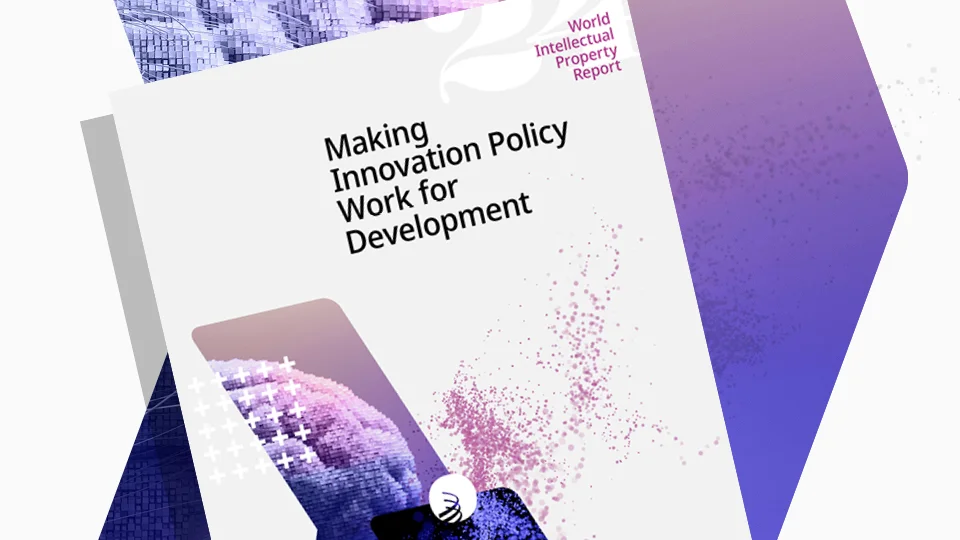World Intellectual Property Report 2024
Making innovation policy work for development
The 2024 edition of the World Intellectual Property Report highlights the positive impact of innovation and industrial policy on helping to leverage the existing capabilities of a country or region.
The report demonstrates how know-how leads to technological progress and economic growth.
It looks into three industries, agriculture, motorcycles and videogames to illustrate how policymakers can help build innovative capabilities.

Defining innovation capabilities with industrial policies
Industrial policies guide the direction of innovation of a region or country, focusing on local scientific and technological (S&T) capabilities, competitive strengths, and opportunities for growth.
Successful industrial policies should help develop new capabilities, nurture nascent ones, and maintain existing advantages on others.
In this year’s edition of the World Intellectual Property Report, WIPO reveals how economies can position themselves for economic and sustainable development with innovation policies.

How can economies measure their innovation capabilities?
Measuring an economy’s S&T knowledge can inform the design of innovation and industrial policies. The World Intellectual Property Report explores several ways an economy can measure its innovation capabilities.
The complexity indicators can be used to measure location-specific level of know-how, while the principle of relatedness can help identify potential activities where economies can diversify using similar skills to those that they currently have.
Further to this, smart specialization is a strategy that allows governments and companies to pinpoint priorities for investment that build on local scientific and technological endowments.
By combining these methods of measurements, policymakers can identify an economy’s skills and in which of the not-yet -developed competences they can diversify.

Fostering agricultural innovations with agricultural policies
Agriculture plays a major role in every country’s economy by providing food security and feeding the global population. But the reliance on natural resources that are scarce, highlight the necessity of preserving our environment and managing our resources sustainably by investing in AgTech innovations.
The World Intellectual Property Report focuses on three agricultural innovation hubs (São Paulo in Brazil, Nairobi in Kenya, and Colorado in the US), showing how they successfully specialized in specific AgTech and respectively became leading producers of ethanol, maize, and crop biotechnology.
Find out how government support is vital to building local innovative capabilities in agriculture in order to feed nearly 10 billion people by 2050, which is nearly two more billion people more than today.

History of motorcycles and the transition to electric motorbikes
The motorcycle industry has evolved from traditional motorbikes to electric motorcycles.
This transformation has been driven by technological progress, the introduction of new materials, shifting consumer preferences and a growing demand for more sustainable transportation options. The transition towards electric motorcycles has made some technologies and skills outdated or in need of adaptation to keep pace with state-of-the-art products and processes.
The World Intellectual Property Report focuses on three motorcycle innovation hubs, Italy, Japan and India, to analyze the evolution of technological and production capabilities of motorcycle development.
Discover how governments can shape the future of electric mobility via a mix of incentives, interventions and regulations.

Driving economic growth with innovations in gaming
As a form of leisure and relaxation activity, 3 billion people play videogames every year. The development of video games has grown more complex and requires more specialized know-how.
Transferrable skills such as graphic design, software development and storytelling are key to drive innovations.
The World Intellectual Property report concentrates on four videogame hubs, Japan and the US, early movers into the videogame industry, and Finland and Poland as newer entrants to provide an insight on their know-how in the videogame industry.
Learn how policymakers can influence the development of robust video game hubs to drive economic growth and competitiveness in the dynamic videogame industry.

About the World Intellectual Property Report
The World Intellectual Property Report, published every two years, offers fresh insights into the role of innovation in market economies and, in doing so, fosters evidence-based policy-making. Each edition focuses on specific trends in an area of intellectual property (IP).
